Pressure on sterling and the collapse of economic confidence in the UK is not a rational explanation for the fall in Irish beef prices experienced over recent periods, says the Irish Creamery Milk Suppliers Association (ICMSA).
ICMSA livestock chair Des Morrison said Irish beef processors are “hiding behind” recent falls in the value of the pound to cut the prices farmers are receiving.
He made his comments after attending a recent Bord Bia meeting where he claimed “frank and unvarnished opinions” were expressed about the British economy’s impact on Irish prices.
‘Peddled’
Morrison said that the explanation is “being peddled by the factories” and did not stand up to any degree of scrutiny.
“The first thing to note is that the slide in beef prices comfortably predates the latest sterling slide. Beef prices have fallen by approximately 80c/kg since June.
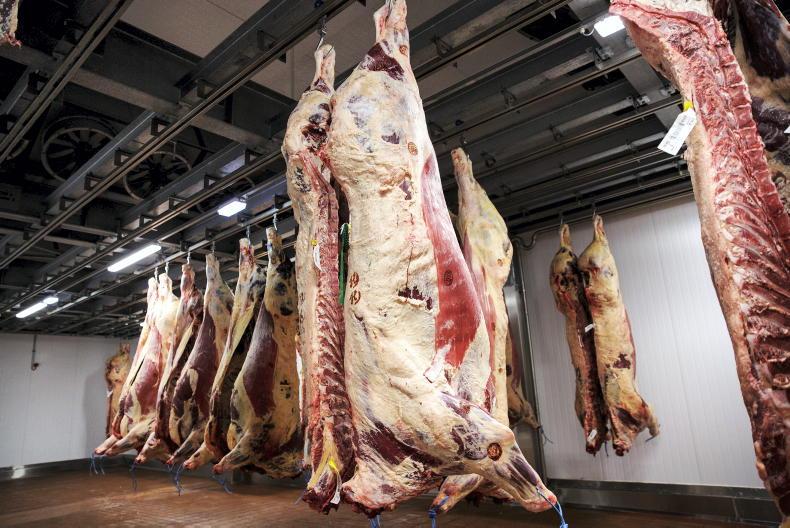
Irish beef prices are behind those elsewhere in the EU, says the ICMSA. \ Donal O'Leary
“Factories were sliding prices down at least two and a half months before the fiscal statement of 23 September triggered the notable fall in sterling against the euro. So, the dates don’t line up.
“The second thing is that even if consumer sentiment in the UK is preparing for a recession – and we concede that it is – then their purchases will switch to manufactured beef and indeed we see a proportionate growth there as consumers look to one-pot dinners that will use less energy and don’t rely on premium cuts,” he said.
The ICMSA livestock chair suggested this increase in demand for manufactured beef will “actually outweigh the fall in sterling to euro” and said “we certainly can’t see how the change in exchange rate would have more of an impact than that massive demand for manufactured beef”.
‘Opportunistic profiting’
Morrison went on to claim that it is “much more likely that the beef processors are using sterling’s weakness to camouflage opportunistic profiteering”. He highlighted the fact that the current 30c/kg differential between Irish price and the European average for prime beef is the “highest it’s been for a number of years”.
“The pattern here is nothing new: as soon as factories can see an increase in steady supply, they move to cut price. It’s nearly laughable to hear Meat Industry Ireland (MII) and factories talking about the importance they attach to a 52-week supply when they have systematically undercut winter finishing.
“The move to cut prices is usually timed to coincide with a fall-off in live exports. I don’t know who they [the factories] think they are fooling if they imagine that winter finishers will continue to produce at a loss,” he warned.
Pressure on sterling and the collapse of economic confidence in the UK is not a rational explanation for the fall in Irish beef prices experienced over recent periods, says the Irish Creamery Milk Suppliers Association (ICMSA).
ICMSA livestock chair Des Morrison said Irish beef processors are “hiding behind” recent falls in the value of the pound to cut the prices farmers are receiving.
He made his comments after attending a recent Bord Bia meeting where he claimed “frank and unvarnished opinions” were expressed about the British economy’s impact on Irish prices.
‘Peddled’
Morrison said that the explanation is “being peddled by the factories” and did not stand up to any degree of scrutiny.
“The first thing to note is that the slide in beef prices comfortably predates the latest sterling slide. Beef prices have fallen by approximately 80c/kg since June.

Irish beef prices are behind those elsewhere in the EU, says the ICMSA. \ Donal O'Leary
“Factories were sliding prices down at least two and a half months before the fiscal statement of 23 September triggered the notable fall in sterling against the euro. So, the dates don’t line up.
“The second thing is that even if consumer sentiment in the UK is preparing for a recession – and we concede that it is – then their purchases will switch to manufactured beef and indeed we see a proportionate growth there as consumers look to one-pot dinners that will use less energy and don’t rely on premium cuts,” he said.
The ICMSA livestock chair suggested this increase in demand for manufactured beef will “actually outweigh the fall in sterling to euro” and said “we certainly can’t see how the change in exchange rate would have more of an impact than that massive demand for manufactured beef”.
‘Opportunistic profiting’
Morrison went on to claim that it is “much more likely that the beef processors are using sterling’s weakness to camouflage opportunistic profiteering”. He highlighted the fact that the current 30c/kg differential between Irish price and the European average for prime beef is the “highest it’s been for a number of years”.
“The pattern here is nothing new: as soon as factories can see an increase in steady supply, they move to cut price. It’s nearly laughable to hear Meat Industry Ireland (MII) and factories talking about the importance they attach to a 52-week supply when they have systematically undercut winter finishing.
“The move to cut prices is usually timed to coincide with a fall-off in live exports. I don’t know who they [the factories] think they are fooling if they imagine that winter finishers will continue to produce at a loss,” he warned.





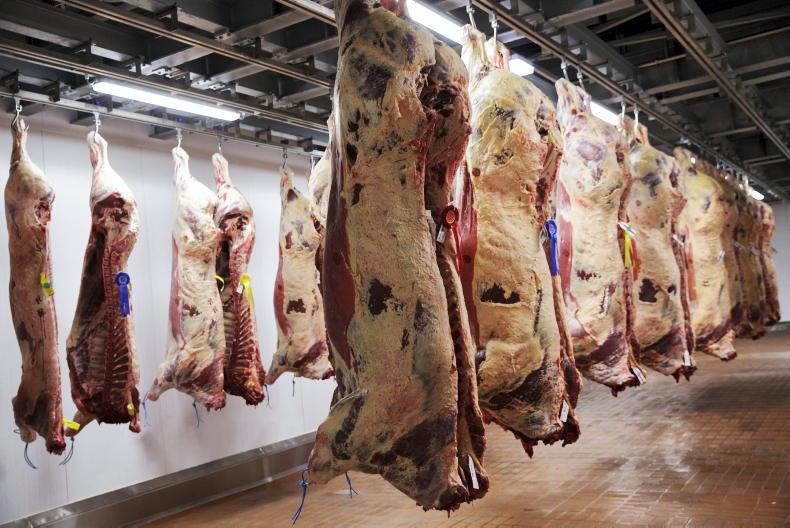

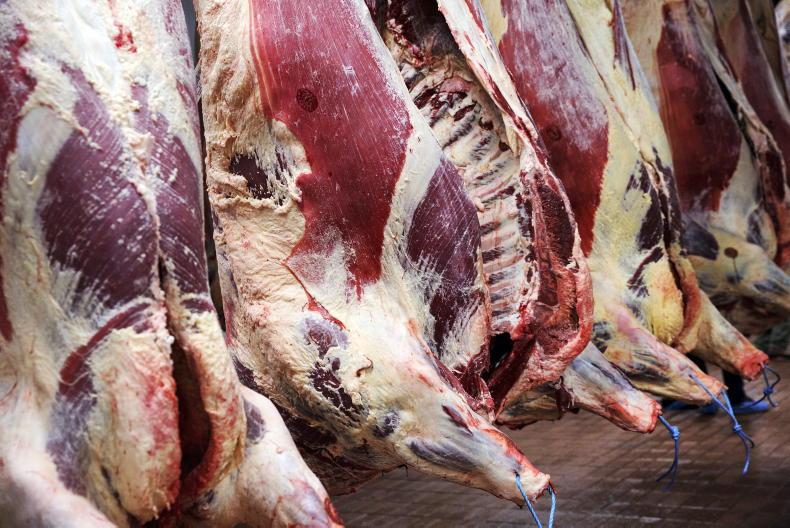
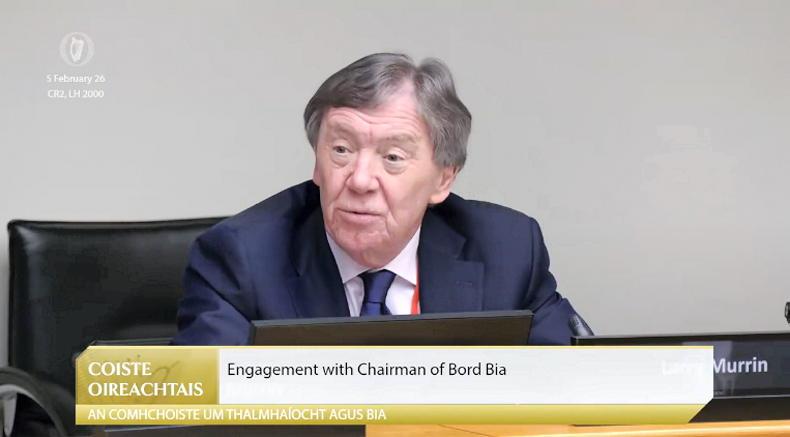
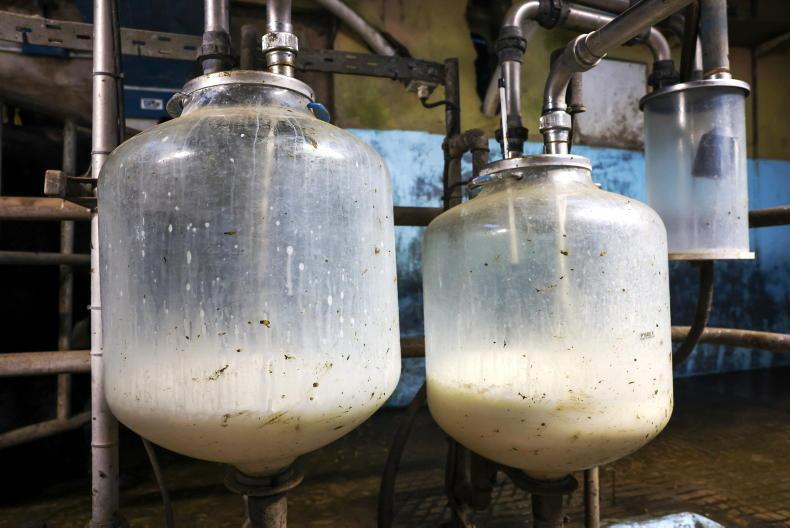
SHARING OPTIONS